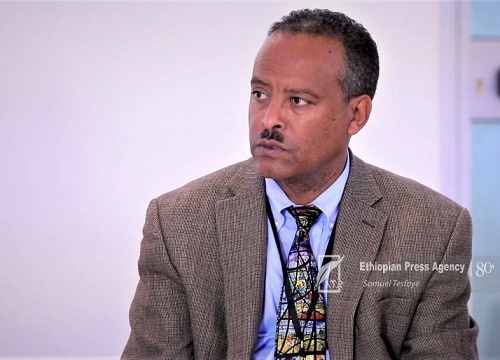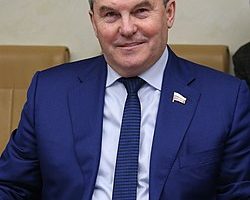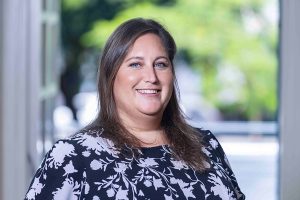
BY EPHREM ANDARGACHEW
Part I
The Ethiopian diaspora community has been ardent supporters of the ongoing reform process in the country. Accordingly, they have been showing their support through contribution of resources, expressing support through demonstrations, conferences, among others.
As challenges to the reform took their tolls at home, they have also intensified their involvement in addressing them. This time they have taken significant step to participate in solving problems in the country through organizing themselves in teams or delegations and paying visits to areas that need their roles.
Abel Gashe is Chairperson of Ethiopian Center for Peace and Progress. He is among the Ethiopian diaspora Peace Corps delegation that paid visit to areas affected by conflict in different corners of the country.
The Ethiopian Herald had a short stay with Abel and discussed his observation of the areas he visited as well as the support they provided. Have a nice read:
Could you tell us about your team and its mission?
Ethiopian diaspora peace corps has come with a mission of understanding the Ethiopian reality on the ground. We represent more than 10 civic organizations. As we know the diaspora community is an integral part of the Ethiopian community. Everything that goes here really affects us in one way or another and we believe that we have major role to play as diaspora.
A lot of things occur especially these days. To name but a few the ongoing law enforcement operation in the North or the GERD reality or the election that has been just completed. Hence, we like to have a positive influence and impact on our country’s development. As I said one of the major issues or problems that we have is that we are very far from our home country.
We get information on every development about the country primarily on the social media. There are also other stakeholders who would like to feed different set of information that would swing our opinion or our understanding of the reality to their advantage. So, the diaspora peace corps wants to see the reality on the ground. One of the areas that we need to focus is promoting peace. No shred of doubt peace is very central element in any counties progress or development.
Over the last three years, we have seen conflicts affecting our society. So, we decided to go and visit them in the place where they are and as a group we have taken different routes. The first team went to the North and we have visited the Kemise area and Ataye. We had the opportunity to see people in the place where they have been sheltered. The second team had gone to Konso and to areas in the south where we choose that would help us to get first hand information.
Which route did you take?
I went to the north and I went to Ataye and also the Kemise area in the Oromia special zone area. We have seen people who have been dislocated or displaced from their original place and we have seen very difficult circumstances of living. We try to take little assistance but that may not be enough. Most importantly, we visited the people; we talked to them and also met the officials who govern the areas. We have sensed that there is still more to be done for these people. They need some essential helps in terms of sanitation, food items and also even a sense of security that they should feel. Especially, the Ataye place, we see some sense of insecurity on the part of the people.
So, we need to help them. They should be guaranteed that things will be okay. I think one important thing after we assess the circumstances is we can better understand as to what we can do next, and what kind of resources should be mobilized.
I think you have communicated with officials. What was the point they raised if there is any assistance, they need from you?
Yes, we did, they helped us actually. The people that we saw there who have been displaced want to go back to their original place. This is very normal; but while they are there, they need whatever you want to live with, like enough food and also clothes, sanitary materials for women. We offered some but we can see that was not enough, so, we can support them in these areas. But it is very important any human being feels safe and better if s/he is taken back to their places so they can start their normal life.
Anyway, the fact of the matter is that the governors, the mayors of these places have helped us understand the situation and what is planned in the future to be done.
How many IDPs are there?
It varies from place to place; in one of the areas, we learned that there are more than 20 thousand people. All in all, we only saw two locations in our team but that was just some of them.
There are tens of thousands of displaced people in different locations but what we have seen probably maybe two or three hundred people in one place.
What have you observed about the government activities?
It is very difficult to tell exactly what the operation is. I mean one thing that encourages me in Oromia special zone in Kemise area is the Zonal administrator Mr. Mohamed has been very cooperative, and his staff showed us that a lot of things have been done to this people.
I had the opportunity to walk in to their sleeping places. It is dismal. It really needs change, you know. I approached lady whose languages I don’t speak but she was telling me in a way that she expressed her emotions, and the interpreters told me that she is sleeping on bare cement floor. Nothing but it is very tiny what you call “kesha” (sleeping mat) those are the kind of things they are using. The kind of blanket that we offered meant a lot to them though we feel it is too little to us.
They really thanked us for that. So, there are a lot of things that you know needs to be done both from the administration side and our side. Over and beyond, they need to be first secured for their life. Otherwise, there are a lot of works that need to be done to bring reconciliation and peace among the different conflicting parties. Those people who visited have their own understanding as to who created the problem and why. It was unnecessary all in all. So, I think a lot can be done in helping these people.
International organizations have the duty and responsibility to support IDPs. Do you see these representatives of humanitarian organizations in the area?
As I said I visited two different place one is the Kemise area and the other is the Ataye. The Ataye people are settling in the office of Amhara Development Association’s office. But in other place we did not see any international organization but in the Ataye area we have seen UNICEF, and there are three different tents where people get different services, so we don’t get the chance to talk to the international organizations’ people but I think more can be done in that area. Because different international programs like the World Food Program (WFP) and others have programs extended to this. More can be done to this people. I don’t know how much is within the framework and the network of this organization. We have seen one in Ataye but we did not see in the Kemise area.
Do you have ample information from the international community about these issues? Are they just voicing the plight of these people?
Well, there are different international organizations. Some have better networking and information structure to gather data. We have as I said UNICEF and WFP have this different place under their map. But these people must get some kind of assistances from the international organizations.
What is expected from Ethiopians at home and abroad?
We Ethiopians whether at home or abroad should be able to organize ourselves better to allocate resources, find the way to do that. I had the opportunity to work with organizations here, non-profit organization during the 2015/2016 drought in the Somalia and other regions. We have gathered a lot of resources and we chose three different organizations to give two hundred thousand dollars to deliver for 8 hundred families as that time. So, my church had the opportunity as that time, we can do the same. To those people we can organize resources. One important advantage of our visit, as I already said it, is we have understood the reality on the ground. And we would be acting accordingly.
As Peace Corps because your very name suggested that you’re peace delegation, so what must be done to dry the roots of the problems?
You see war is not a solution, killing each other is not a solution, the way is to have a dialogue among the different groups you know the Ethiopian society is well developed it has its own system of solving crises. The elders have to come and be given the place, religious institutions, elders’ councils have to be
given their proper place, the Ethiopian society is known to be utilizing this kind of asset. We can cite here how the Gamo elders precluded a looming danger. Our team has also visited the Konso area and had the opportunity to talk to the Gamo elders and that is typically of the Ethiopian social structure, the elders, the religious institutions have to be in their proper place. I think one of the things PM Abiy has done is the establishment of Ethiopian Reconciliation Commission. Hence, this kind of organization needs to be activated with more delegation and more role, it needs to come to the forefront of our current situation.
You know, administrative structure, administrative system may not be always the right solution for these kinds of problems, these communities have been living for thousands of years and they have their own way of solving problems that must be harnessed. But the political activities, the cadres, have been playing critical role in flaming the different conflicts. This has to be controlled; we have a way; we have to say no to external forces, external activists who give agenda for this people because these are, if you go find out they also blame the terrorist TPLF and their cronies by providing agenda for these people and kind of inflaming their little and minor conflicts to blow up so that become a full war. So, we should play more roles in providing information and activating the elders and those people who have been doing for years.
The Ethiopian Herald August 14/2021





